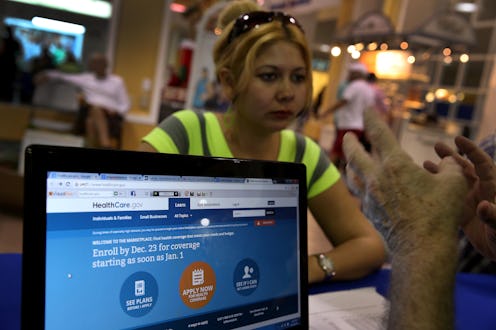News
Are Doc and Hospitals Ready For Obamacare?
Whether you like it or not, Obamacare has officially arrived. Starting today, Jan. 1, six million Americans have new healthcare coverage under the Affordable Care Act. But in what's become the norm when talking about Obamacare, people are confused. And that uncertainty extends to those who we usually look to for answers, including doctors and hospitals.
So, now what? How do doctors and hospitals know which coverage you have if you don't have insurance cards yet? If you have an emergency today, will administrators know what to charge? There are some concerns, especially because of the Obamacare enrollment crunch in the last week.
"It will be difficult for us to actually verify coverage — that's my concern," said Dr. William Wulf, CEO of Central Ohio Primary Care, which has 250 primary care physicians.
To secure healthcare that begins with the start of the new year, many people were scrambling to sign up until the very last minute, due to repeated setbacks and glitches on the Healthcare.gov website. The Obama administration extended the deadline to Dec. 24, and the number of enrollees on the federal healthcare marketplace skyrocketed to 2 million — compared to only 365,000 people before Dec. 1. The law requires all Americans to have healthcare, and they have until March 31 to sign up.
Some experts warn that low-cost coverage may cause doctors to refuse care to certain patients, especially since the Obama administration anticipates 9 million more people to gain care under expanded Medicaid benefits. Simply, there might be too many people vying to see a limited number of doctors.
"These networks are going to be jammed with people," says Robert Laszewski, president of Health Policy and Strategy Associates. "Far more than they're treating now, and I don't doubt that we're going to have problems with access to these doctors. There just aren't going to be enough of them."
But others brush off those concerns. The number of people gaining insurance is a "drop in the bucket" for the current healthcare system. Plus, many of the 6 million had another previous insurance and were simply renewing it under Obamacare instead. And studies have shown that there was little to no effect on wait times when Massachusetts implemented a similar insurance policy system.
"People are going to be surprised by how little happens," says Ashish Jha, a Harvard professor who has studied Massachusetts's insurance expansion. "We're all thinking there will be this new flood of people. And there will be some people with pent up demand, but I think there's a lot more slack in the system than we give it credit for."
Hospitals expect an increase of patients, but Jeff Goldman, vice president of coverage policy for the American Hospital Association, says most hospitals are fully equipped to handle any problems related to Obamacare.
If you encounter any hiccups with new coverage, White House health policy adviser Phil Schiliro says to first call your specific insurer. If the insurance company can't help, operators will be manning the phones 24/7 at 800-318-2596.
An estimated 45 million Americans lacked health insurance before the ACA, according to U.S. government figures.
